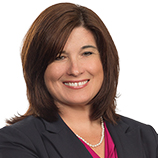Mass Tort / Asbestos Update – Fourth DCA Reverses $8 Million Jury Verdict in Asbestos Litigation for Failure to Exercise Gatekeeping Function
September 15, 2016 by boydjenerette on News
In Crane Co. v. DeLisle, Nos. 4D13-4351, 4D14-146 (Fla. 4th DCA Sept. 14, 2016), Florida’s Fourth District Court of Appeal considered cross-appeals after a jury awarded plaintiffs $8 million in an asbestos lawsuit against a valve and pump manufacturer and cigarette manufacturers. The jury found both appellants’ products contained asbestos and were substantial contributing causes to appellee’s mesothelioma. In this decision, the Fourth District analyzed the trial court’s admission of expert testimony, instructions to the jury, and denial of a reduction of the jury award based on improper closing argument.
Regarding the admissibility of plaintiffs’ expert witnesses’ opinions, the Fourth District found the trial court failed to properly exercise its gatekeeping function as prescribed under Daubert and Florida Statute § 90.702, Florida’s codification of the standard. Reaffirming Florida’s repeated rejection of the “every exposure” theory, the Fourth District held plaintiffs’ sole expert witness’ causation testimony against Appellant Crane Co. regarding the causal link between its products and plaintiff’s mesothelioma was insufficient to establish liability. The Fourth District reversed the trial court’s denial of a directed verdict and ordered a verdict be entered in Appellant Crane Co.’s favor. As to the other two challenged experts, the Fourth District found their opinions failed to demonstrate reliability on the record. Both opinions were based on the studies of other experts to which the expert himself questioned the reliability of or knew nothing about in regards to the studies’ methodologies, their acceptance in the scientific community, and whether the studies were peer reviewed. Thus, each expert effectively asked the trial court “to take his word for it.” Because these opinions should not have been admitted under Daubert, the Fourth District reversed for a new trial for Appellant R.J. Reynolds.
The Fourth District then considered the trial court’s refusal to instruct the jury on plaintiff’s actual use of Appellant R.J. Reynolds’ product. The trial court refused to instruct the jury and submit for its consideration the threshold question whether the plaintiff actually used Appellant R.J. Reynold’s product, reasoning it was not a standard instruction and the question was inherently embedded in the standard instructions. The Fourth District recognized the standard jury instructions appear to assume product use. However, in a case such as this, where actual product use was hotly contested and addressed during preliminary instructions, testimony, and in closing argument, the Fourth District concluded the trial court should have provided a targeted instruction to the jury to determine the product use issue first, before determining liability and damages.
Last, the Fourth District analyzed the trial court’s denial of remittitur of the jury’s $8 million award. Appellant argued the award was excessive and a result of plaintiffs’ counsel’s inappropriate closing argument, asking the jury to compensate the plaintiffs based on the rate the parties compensated their experts. The Fourth District agreed and found the argument improperly focused on the defendants’ ability to pay rather than the actual loss to the plaintiff. The Fourth District found the jury relied on plaintiffs’ counsel’s suggestions to reach its verdict. The Court also noted the award was substantially higher than any previous award for mesothelioma or asbestos-related disease. As such, the Fourth District held plaintiffs’ improper appeal to the jury should have warranted a remittitur or a new trial on damages.
Billie Jo Taylor
Partner / Practice Group Leader
Direct: 904.520.7801
Fax: 904.520.7368
Email: btaylor@boydjen.com
Elizabeth T. Cardenas
Associate
Direct: 904.520.7804
Fax: 904.493.3748
Email: ecardenas@boydjen.com


